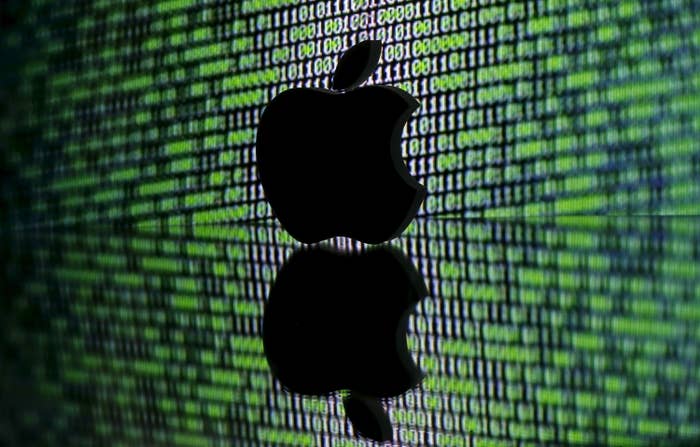
The Department of Justice will seek a court order demanding Apple crack the cellphone of an alleged drug dealer in Brooklyn, a law enforcement official said Friday.
The announcement comes more than a week after the federal government dropped its legal case demanding Apple help access the iPhone of one of the San Bernardino terrorists. Yet the Brooklyn case and other ongoing criminal investigations suggest the tech giant and federal authorities will continue to clash in court as investigators try to legally compel Apple to open up its phones.
Government officials still require Apple's assistance to access the secure data on the iPhone 5s in New York, the law enforcement official said. The method the FBI purchased to unlock the San Bernardino phone, which was a 5c, does not work on the model 5s.
The Justice Department has stated in court filings that the phone's data may be useful in an ongoing investigation into a methamphetamine conspiracy.
The legal dispute could affect other pending criminal cases involving locked iPhones.
In a separate case in Boston, for example, a judge ordered Apple in February to help the FBI penetrate an iPhone belonging to a suspected gang member accused of shooting a rival.
An Apple official told BuzzFeed News the company received the warrant on Feb. 16, but within hours told the FBI agent who requested the order they would not be able to comply. The company does not have the ability to access encrypted data on an iPhone running iOS 9, the official said, which is the operating system on the Boston device.
Apple also said it would not comply because the court order relied on an 18th-century statute, known as the All Writs Act, the legal authority of which was under question in the Brooklyn case.
"Apple has represented that they were unable and unwilling to comply with the court's order," Emily Pierce, Justice Department spokeswoman, told BuzzFeed News.
The Boston case has since remained in a sort of legal limbo. Federal prosecutors have not yet decided whether to seek an additional court order to compel Apple to cooperate.
Like San Bernardino, the case in New York may now serve as a precedent-setting legal fight, better defining the limits of the All Writs Act. The Justice Department has decided to challenge Apple again, this time in Brooklyn. When asked if the judge presiding over the Eastern District of New York case would offer the government stiff skepticism, in light of the sudden and unexpected San Bernardino developments, the law enforcement official said, "I'd rather not speculate on what the judge might say."
The official also declined to provide any details on what outside parties the Justice Department contacted to help access the device.
In San Bernardino, a third party approached the government with a secret method that proved successful. But FBI Director James Comey has said they came forward only after the publicity surrounding the case compelled them to.
"We're not going to get into any details about discussions we may or may not have had with outside parties," the official said. "The big difference here is that we do know of an outside party, a party outside government, that has a tool to be able to extract data from this particular phone. And that party is Apple."
According to court documents and law enforcement officials, Apple has complied with similar court orders in about 70 other cases. But in New York, Federal Magistrate Judge James Orenstein rejected the government's application for a court order. He concluded that the government, which based its case on the All Writs Act, lacks the authority to compel Apple to provide the government with its customers' encrypted information against the company's will.
Through it's announcement and court filing Friday, the Justice Department has formally appealed Orenstein's ruling. Whether the government receives an order against Apple now rests in the hands of Judge Margo Brodie.
In a call with reporters Friday afternoon, Apple attorneys said they will challenge the government's request in Brooklyn for a court order, adding that they were disappointed, but not surprised.
Apple attorneys said the New York case is further proof that the Justice Department is aiming to set a legal precedent — expanding the powers of the All Writs Act, and redefining the limits of what the government can demand of Silicon Valley.
They also said Apple will not sue the government to reveal details of the secret San Bernardino vulnerability, adding that the company is confident the method will have a short life security is improved.
The company will, however, urge the government to prove why the San Bernardino method cannot work in the New York case. Apple's lawyers will also ask the government to show what other methods they have tried, and to reveal the extent of their search to find outside parties that may be able to assist federal investigators, which is how the San Bernardino battle was resolved.
Apple has argued in the past that the government has wrongfully used the All Writs Act as an "all-powerful magic wand" to assert a "dangerous power that Congress and the American people have withheld.”
Apple will file its formal response to the court on April 14, the attorneys said. The government will then have until April 22 to reply.

